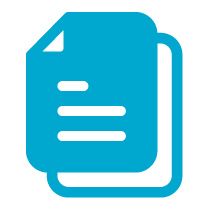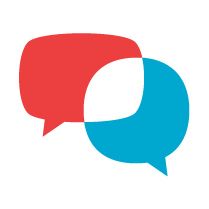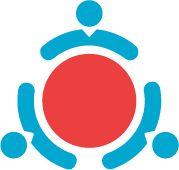JoLLE Winter 2021
Virtual Conference
Saturday, Feb. 6
Toward Transformative Justice
Cultivating Accountable Community and Empowering Solidarity in Language and Literacy Education
AGENDA
Saturday, Feb. 6
9-9:30 a.m.
Welcome and introduction:
Usree Bhattacharya
Usree Bhattacharya, an assistant professor in the department of language and literacy education, received her Ph.D. in education from the University of California, Berkeley in 2013. She has a master’s degree in teaching international languages from California State University, Chico (2006); an M.A. in English literature from Lakehead University (2001); and she received a B.A. in English from LSR College, Delhi University (1998).
Her research is inspired by questions of diversity, equity, and access in multilingual educational contexts. A primary aim of her work is to illuminate the role of discourses, ideologies, and everyday practices in the production and reproduction of hierarchical relations within educational systems. Motivated by her toddler daughter’s recent diagnosis of Rett Syndrome, one of her emerging areas of interest is exploring language and literacy socialization within the severe, complex, and multi-disability context.
9:30-10:30 a.m.
Keynote speaker: Yolanda Sealey-Ruiz
“Enacting Critical Love: An 'Archaeology of Self' Approach Towards Anti-Racism in the Academy and Beyond”
We are beings who live interdependently in a world that often prioritizes the humanity of some groups over others. In this keynote address, Yolanda Sealey-Ruiz invites participates to think deeply about ways to uproot bias, stereotypes, and racist beliefs by engaging an Archaeology of Self and enacting critical love, particularly in moments of hostility and conflict. Archaeology of Self is an important component of Racial Literacy development. Racial Literacy is an action-oriented process requiring critical love, humility, and reflection, as well as an understanding of history and a commitment to working against racial injustice. We are more than the academic fields we study, and the value the Academy subscribes to us based on our status as a graduate student, faculty, or staff member.
10:45-11:30 a.m.
Breakout sessions 1

PAPERS
“Changing School, Growing Teachers, Creating Spaces for Equitable Learning”
Catherine Compton-Lilly, University of South Carolina Columbia
Keywords: Education equity, critical pedagogy, space
In this presentation, Catherine Compton-Lilly argues for systemic and seismic change across all dimensions of schooling to advocate for anti-racist educational practices that provide equity and opportunities for all children. To explore these issues, we highlight a promising set of systematic and intentional practices at the University of South Carolina. Specifically, we discuss educational practices that affect children, their teachers, preservice teachers, and university instructors across five layered spaces:
- A Professional Development School network that has fostered and continues to support long-standing collaborations among schools, teachers, faculty, and preservice teachers
- An elementary education program that values direct experiences with children alongside tough and honest conversations about race, social justice, and educational equity
- Collaborations with teachers as they work to create, implement, and refine culturally relevant and sustaining curricula
- Opportunities for preservice teachers and university faculty to observe culturally sustaining pedagogies that honor children who bring racial, cultural, and linguistic differences to the classrooms
- Embedded methods education courses—across disciplines—that provide preservice teachers with opportunities to work directly with children from a variety of backgrounds alongside opportunities to explore content area learning for children from a vast range of backgrounds
While the implementation of each of these practices is a significant contribution in its own right, we focus on how these practices contribute to systemic, comprehensive, and sustainable structures with a shared focus on culturally sustaining learning for children, teachers, preservice teachers, and university faculty.
“The Power of Words: Girls Constructing Their Identities Through Writing”
Mary-Celeste Schreuder, Clemson University
Keywords: Identity, adolescent girls, writing
Adolescent girls often face challenges when constructing their identities due to gender inequality within society and schools. How then do teachers disrupt gender discrimination and create space for girls to develop a positive sense of self? This presentation will explore findings from a metasynthesis on the connection between writing and the development of girls’ identities, revealing methods for humanizing writing practices in the secondary classroom.
“Social Justice Pedagogies in Social Studies and English Language Arts Instruction”
Daniel Stockwell and Elizabeth McDonald, Clemson University
Keywords: Social justice pedagogy, critical disciplinary literacy, counternarratives
Social studies and English language arts classes are ideal spaces to work through questions students have about the founding of this nation and the voices (historical and literary) that are valued and used to tell the story of the United States. This session will show how teachers can adopt critical pedagogies to engage students in meaningful instruction that promotes social justice and fosters student agency.

PANELS
“Shifting Preservice Teachers' Perspectives on Early Literacy Learning in the Home Context”
Emma Chen, University of Saskatchewan
Keywords: Parent knowledge, early literacy, teacher education
Through a family Photovoice project (Wang & Burris, 1997), preservice teachers work with parents and children on early literacy learning in the home context. The project shifts the taken-for-granted idea of “teachers are the only knowledge holders.” Preservice teachers learn from parent knowledge (Pushor, 2015), develop a broader and more holistic understanding of children as literacy learners, and form new perspectives on early literacy teaching pedagogy.
“Thinking Conjuncturally of School Reopening in the Time of Crisis”
Shuang Fu, University of Georgia
Keywords: COVID-19, school reopening, democracy, education policy, conjunctural analysis
The COVID-19 pandemic has resulted in people's recognition and appreciation for the importance of public schools. In this presentation, we understand public conversations around school reopening as a site where social and political contradictions are underpinned. The in-depth analysis helps to identify the core hegemony embedded in school reopening planning, but also provides critical insights into the educational politics in the contemporary time of crisis.
12:30-12:50 p.m.
Social event: Guided Meditation for Stress and Anxiety
1-2:10 p.m.
Roundtable sessions 1

ROUNDTABLE 1
“Critically Reading the Canon: Culturally Responsive Approaches to a Prescribed Literature Curriculum”
Jennifer Ervin, University of Georgia
Keywords: Reading and literature instruction, multicultural education, diversity, curriculum
Enacting culturally responsive pedagogies in an English language arts classroom that requires reading canonical literature presents a difficult challenge. Teachers without autonomy over their curriculum may wonder what they can do to remain responsive to the needs and knowledge of diverse learners in this context. This presentation on recent research demonstrates that applying a critical literacy lens when analyzing literature can create a place for culturally responsive teaching within a prescribed curriculum.
“Redress the Linguistic Injustice to U.S. Chinese Immigrants through Chinese Heritage Language Education”
Wei-Yi Lee, University of Georgia
Keywords: Chinese heritage language learners, language ideology, language acquisition, Chinese diaspora
The group of Chinese Heritage Language Learners (CHLLs) in the U.S. have been marginalized by systematic racism and injustice to the Chinese immigrants. This presentation attempts to draw attention to the preservation of immigrant languages by providing an overview of and research of CHLLs in the U.S. This preservation practice will motivate us to reflect on the topics of heritage languages, language ideology, social justice, and racial equality concurrently.
“The Meaning and Importance of Cultural Literacy in the 21st Century”
Geoffrey Kellogg, University of South Florida
Keywords: Cultural literacy, cultural competence, identity
Students’ cultural knowledge has long been accepted as playing a crucial role in learning. However, the spread of the concept of multiliteracies and increasing political polarity have complicated the already nebulous notion of culture. This session seeks to show how cultural literacy is being studied today, and what questions are raised by recent work on this topic.

ROUNDTABLE 2
“Weighing the Pedagogical Import of Digital Backchannels”
William Wright, University of Georgia
Keywords: Backchanneling, digital technology, agency
The term backchanneling has shifted from its linguistic roots to accommodate technological tools like texting and social media. As both a literacy instructor and videogame design camp counselor, William Wright has explored the potential of digital backchanneling to help students seek clarification from one another, make unexpected connections, invite shy voices, and/or add humor and spice to a lesson without ever taking center stage. These are lively, collaborative spaces, and they deserve a closer look.
“Developing a Growth Mindset toward Writing in a Virtual Middle School English Class”
Alicia Kelley, Clemson University
Keywords: Writing pedagogy, virtual education, equity
This empirical presentation will share findings from a case study with an 8th grade virtual school teacher who sought to move students toward a learning-centered view of academic writing in an equitable manner. The presentation will also engage participants in thinking deeply about how to empower a growth mindset in writing skills while seeking to correct the continued lack of equity in the ways English language arts are taught.
“Using Diverse Texts with Interactive Read Alouds”
Christine Reilly and Jamie Caudill, Georgia Gwinnett College
Keywords: Diversity, children's literature, teacher education
As teachers strive to reflect the diversity of students in their classes, it is important to demonstrate ways to include literature that is representative of various cultures. Allowing students to see themselves in books creates a community within the classroom of inclusiveness and can have an increased impact on all students’ identities. The presenters will share varied children’s literature that teacher candidates used when presenting interactive read alouds in an Approaches to Teaching Reading class.
The purpose of this presentation is to demonstrate how making a change in the selection of texts for an interactive read aloud to more diverse texts can benefit both the teacher candidates and students. As teachers strive to ensure an equitable education for all students, an interactive read aloud can prove to be a valuable activity within a school day.
2:30-3 p.m.
Social event: Yoga Flow to Thrive and Feel Alive
3:30-4:15 p.m.
Breakout sessions 2

PAPERS
“To the TikTok You Don't Stop!”
LaTasha Price, University of Georgia
Keywords: Pop culture, dance as literacy, hip-hop literacy, socio-cultural literacy, kinesthetic engagement, dance as a pedagogical tool
This session invites participants to learn about the pop culture dance literacy of online dance challenges by learning TikTok dances. This engagement will help educators expand their pedagogical tool kit as well as their internalized perceptions of dances that appear in the classroom. Hip-hop literacy serves as the foundational pedagogical tool in this session.
“Teaching Differentiated Instruction through Magic: A Strategy Showcase”
Tairan Qiu, University of Georgia and Tong Li, Arizona State University
Keywords: Teacher education, magic, differentiated instruction, classroom strategy
This paper presentation aims to showcase how tenets of culturally sustaining pedagogies and differentiated instruction could be embodied and modeled in teacher education classrooms through magic tricks. Session attendees will experience our lesson just like how our students experienced it, through watching magic performances, learning, practicing, and performing magic tricks, and reflecting on their embodied experiences.
“Playing No Man's Sky: A Metaphor for Literacy During COVID-19”
Csaba Osvath, University of South Florida
Keywords: Video games, close reading, No Man’s Sky, autoethnography, COVID-19
Applying close reading techniques to an open-ended, sandbox-style video game can offer new insights for literacy practitioners and scholars. Playing the open-world, exploration game, No Man’s Sky by Hello Games, has become not only a refuge during COVID-19, but a powerful metaphor for literacy. This multimodal, autoethnographic performance reveals how playing a video game can lead to epiphanies and new ideas related to literacy and language learning.

PANELS
“Turning Crisis into Opportunity - How a Children’s Literacy Radio Program Tackled Child Mental Health Milestones in Rural Haiti”
Anasthasie Liberiste-Osirus, University of Notre Dame
Keywords: Literacy, radio program, international development, marginalized
Social justice in education focuses on distributing resources fairly and treating all students equitably to insure reaching developmental and emotional milestones. Participants will have the opportunity to review the challenges and successes that came with developing a large-scale radio program in one of the poorest countries within the western hemisphere in the midst of a pandemic. In particular, a review of the analysis, development, implementation, and evaluation of the whole child literacy program will be presented. The focus will also be on how the program used social-emotional development strategies to bridge the language and literacy gap in the most vulnerable and fragile communities.
“Critical Digital Ethnography of Peer Leaders Exit Interviews”
Katherine Johnson, University of Georgia
Keywords: Youth participatory action research, digital critical ethnography
How can educators fashion a peer leadership course specifically to be inclusive to minority students that can impact students’ empathy and political leadership in school communities? The qualitative data put forth came directly from either the students’ narratives written for a peer leadership midterm, optional exit surveys in the form of 30-second to three-minute videos, or from the Zoom chat language of Katherine Johnson's students.
Johnson’s work is in critical ethnography of these students’ lives and participation in the peer leadership program. It is within a dynamic space that youth and adults remix, recreate, extend, and combine their home knowledge, wider community, and school knowledge to create something that will serve to meet their political realities.
4:30-4:50 p.m.
Social event: Read, chat, healthy snacks
5-5:45 p.m.
Breakout sessions 3

PAPERS
“Too Loud: Positioning of a Black Girl in a First-Grade Readers Workshop”
Suki Mozenter, University of Minnesota, Duluth
Keywords: Early literacy, positioning theory, Black girls
The only Black girl in a first grade readers’ workshop is marginalized and her reading practices are excluded during interactions with her white, Latinx, and Asian classmates. In this session, we will engage directly with excerpts of transcripts of these interactions through social annotation and discussion to collectively identify acts of positioning and envision possible disruptions of Black students’ marginalization.
“Using Digital Multimodal Texts for Emergent Bilingual’s Language and Literacy Development”
Kyungjin Hwang, University of South Carolina
Keywords: Multimodality, digital multimodal texts, language and literacy, emergent bilinguals, semiotics
This study examines how multimodal texts affect emergent bilinguals' language and literacy development in terms of linguistic and socio-cultural dimensions of literacy. Multimodal texts are viewed as supportive of bilingualism and biliteracy (Cummins, 2008) because still or moving images can be prominent as carriers of meaning (Bezemer & Kress, 2008). This study focuses on how learners understand texts and make meaning through multiple modes while avoiding the language education that emphasizes only the linguistic mode.
“On Repairing: A Review of Restorative Justice Literature to Consider Options for Educators”
Merida Lang, University of Georgia
Keywords: Restorative justice, discipline, student-teacher relationships
Researchers report that restorative justice practices can result in lower rates of suspension and expulsion, greater school cohesion, and better conflict resolution skills among students and teachers (McCluskey, Lloyd, Kane, Riddell, Stead, Weedon, 2008). By examining the literature on the state of discipline in schools, restorative justice in the criminal justice system, and restorative practices in schools, a clearer picture emerges for what individual teachers can do in their classrooms, whether their school has adopted a restorative justice model or not.

PANELS
“How Mentor Teachers Mediate: The Hoops We Jump Through and Teacher Instinct”
Sarah Stice, University of Georgia
Keywords: Teacher education, mentor teachers, complex systems theory
Recently, Roegman and Kolman (2020) called researchers to think about mentor teaching through complex systems theory. Taking a comparative case study approach, Sarah Stice interviewed mentor teachers to understand how they mediate the expectations that come from the university context and the K-12 context. Narrowing her follow-up interviews to two participants, she analyzed how they used similar language to describe this expectation. As a result, Stice’s grounded theory can represent how mentor teachers mediate conflicting expectations.
“Navigating Discussions of Social Justice in a Rural, Conservative High School”
Caroline Bedingfield, Winder-Barrow High School
Keywords: Young adult literature, social justice, diversity, equity, and inclusion
Following recent Black Lives Matter protests, it is more important than ever to ask students to have empathy for those with opinions and experiences different from their own. This session seeks to show how units focused on civic engagement in the English language arts classroom can successfully break down and build back up students’ understanding of differing perspectives, profiling, and the privileges that come with being white with the use of young adult literature.
